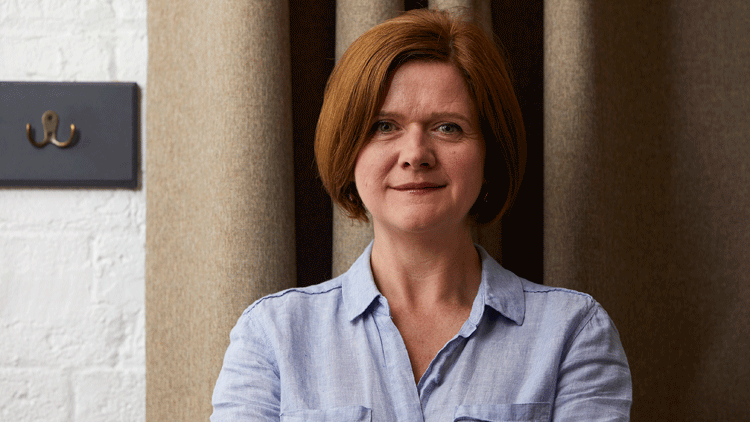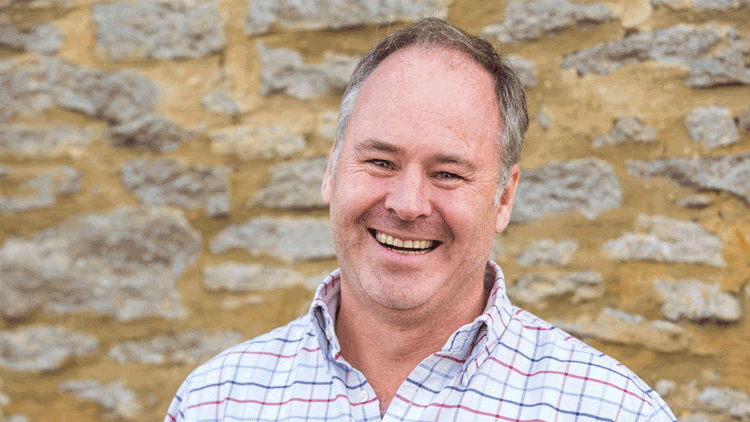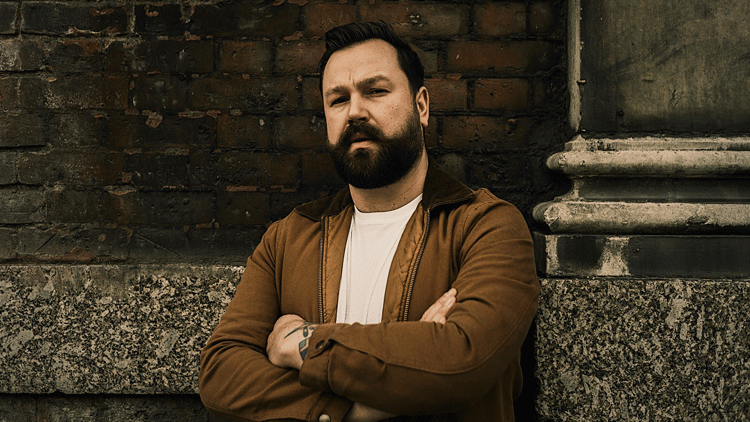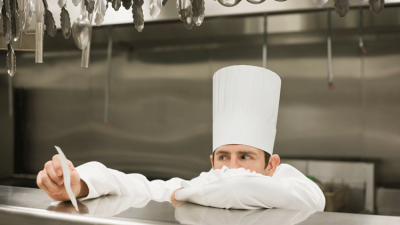Boiling point: how the pandemic inflamed the sector’s mental health challenges

When Kate Nicholls revealed in December that she had seen a therapist in the darkest days of the pandemic the UKHospitality CEO helped open up the conversation around mental health at the top level.
Nicholls told The Observer that she had been acting as an “emotional sponge” for the tens of thousands of pubs, bars and restaurants fearing the worst, while trying to protect her team, particularly the younger members, from the ramifications of the pandemic.
The disclosure shone a light on the extra pressure employers, directors and CEOs, who are often expected to have all the answers, are under.
But just how many highfliers are willing to go out on a limb and talk about their mental health? And is there still a stigma attached to being open and vulnerable despite the fact it could help others feel more comfortable and safer in sharing?
Every year, one in four people will be affected by a mental health problem but the Burnt Chef Project, a non-profit organisation that challenges mental health stigma within the hospitality industry, reports that eight out 10 professionals in the sector have experienced at least one mental health issue during their career.
A pandemic attack
The emotional rollercoaster caused by the pandemic hasn’t helped the situation. As many as 40% of 2,311 hospitality employees surveyed by the Burnt Chef Project in July 2021 revealed they had struggled with their mental health in the previous 12 months, with one in six reporting that it had not ‘been good’.
The findings also showed that general managers appeared to be impacted the most with 42% reporting a decline in the overall level of their mental wellbeing since reopening.
Liz Ritchie, a psychotherapist at St Andrew’s Healthcare, a charity providing specialist mental health support is not surprised by the figures. “Many employers would be inclined to shrug off and not tackle their own silent mental health issues in favour of feeling compelled to deal with others,” she says. “By definition, bosses are expected to be strong and tough which may prevent them from admitting that they are struggling.”
Ritchie does point out that leaders must first take responsibility for their own mental health in order to create a workplace environment that better understands and destigmatises the topic. “This culture can only really be effective if leaders recognise their own issues and share their vulnerabilities and struggles. Any effective leadership requires self-awareness.”
“People shouldn’t have to feel that
they have to get to a crisis point in
order to get assistance"
Hamish Stoddart, managing director of Peach Pubs, shares this sentiment. Stoddart has bipolar, a brain disorder that causes unusual and often sudden changes in mood and energy levels.
A survivor of a terrorist attack in Sri Lanka in 1983, he received his diagnosis at the age of 40. The condition rarely affects his work, and he says he can count “on one hand” the number of days he’s been absent over the past 20 years due to his mental state.
“If we can get people to share and talk about having the proper medication and get the support it doesn’t need to be the end of careers or the end of lives, in fact often it’s a great strength as well as a challenge.”
Stoddart manages his condition with medication and is very self-aware, tracking his sleep to ensure he gets between six and seven hours a night – less than four hours can push him into a high while too much sleep can send him towards a low.
He’s also been trained by Oxford University psychiatrists on how to spot signs of changing mood as well as potential triggers and keeps an eye on his willingness to listen, ability to manage conflict appropriately, interest in reaching out to others and his pressure of speech, which can all be indicators that something may be out of kilter.
“All of these things can be spotted by people around me too,” he says. “I let my family, friends and team tell me when my mood is affecting others or myself, so I get an early warning of when I need to adjust. Showing vulnerability is a leadership strength that people respond to. For me, knowing I have people around that care really helps.”
Another advantage of his condition is that he can now spot the warning signs in others and is conscious when people might be going through a challenging time.
“I find because I’ve been open, people are starting to grab me and say something. As soon as you start sharing you realise that support is there and you’re not on your own. The real challenge is, do the leaders in the business whether number one, two or three allow their team to know that they have a serious issue?”
Compassion is key
This is something Tim Etherington-Judge, founder of Healthy Hospo, a not-for-profit that provides information, advice and training on all aspects of mental and physical health for the hospitality industry, is passionate about.
His organisation was born in 2017 out of a mental health breakdown that almost cost him his life. At the time he was working as a global brand ambassador, which consisted of travelling around the world for long periods of time away from home.
“Eventually my support networks crumbled, my mental health began to deteriorate, and I attempted suicide,” he says.
“It was coming through this experience that made me realise that there was a need for change and conversations surrounding mental health needed to start within the hospitality sector. I received support from my previous company. Through my recovery process, they provided an occupational health doctor and access to a therapist.
“This support was vital to my recovery, and I don’t know if I would still be here without it.”
According to Etherington-Judge, compassion is key. “Directors should reach out to organisations such as Healthy Hospo, Drinks Trust and Hospitality Action [see box out] and create a safe space for conversations to happen.”
Employers are responding. Matthew Reed, founder and managing director at health insurance provider Equipsme, says he’s seen a significant rise in interest in their plans from small hospitality venues and large hospitality chains looking to provide workforce health benefits including online GP access and private diagnosis and treatment.
"There’s no point talking about
mental health if you’re not
talking about hours”
“Take up of our Stress Support line has gone up too, across the board,” he says. “It’s now something at least one-third of our companies choose to include in their packages.”
British steakhouse group Hawksmoor has two Employee Assistance Programmes (EAPs), one with Hospitality Action and the other with LifeWorks. Services include free counselling and helplines.
The company has also been very proactive in what it can do internally to help support employees.
“There’s no point talking about mental health if you’re not talking about hours,” says Ceri Gott, the company’s HR director. “The industry can be tough. We track hours every Monday. Senior directors look at data… who is working over 48 and 50 hours [a week] and we keep a really tight grip on that.
“It means we can see if there’s an issue and respond quickly. We’ve taken initiatives [such as] cancelling covers to reduce trade putting people over profits.”
There is also buy-in at the top. Co-owner and creative director Huw Gott has shared how he manages stressful periods on one of Hawksmoor’s workplace platforms. In one interview, Gott explains that an early sign of stress for him is when his phone takes over his life.
“I find I’m always flicking to it, scrolling through emails, and addicted (more than usual) to eBay…So my plan is [to] try to get a decent amount of sleep, try to forge a less dependent relationship with my phone and actually talk about stuff more. Not letting the stress become internal.”
The Burnt Chef Project
Helpful tips and advice can also be found at the Burnt Chef Project, where free 24-hour support is also available to anyone who needs it through a text service.
The organisation was founded in May 2019 after founder Kris Hall heard about the pressures a couple of his chef friends were under at work, which was negatively affecting their health and relationships.
Hall, who himself had undergone cognitive behavioural therapy (CBT) for a mental health illness a couple of years prior, began taking black and white photos of hospitality professionals to raise awareness and depict what goes on behind the scenes.
Before long he was being asked to give talks around the country. His organisation now employs five people and last year alone, Burnt Chef Project provided mental health support to more than 500 individuals through its free 24/7 support service and trained more than 5,000 people in mental health awareness, personal resilience and leadership skills. It also provides training to businesses and individuals around wellbeing and nutrition.
“People shouldn’t have to feel that they have to get to a crisis point in order to be able to find us and get assistance,” says Hall.
Hall is refreshingly transparent in his outlook and reveals even he is not immune to neglecting his mental wellbeing when times are busy. “I burnt myself out before Christmas, emotionally, physically and my marriage was under strain,” he admits. “I was so laser-focused on Burnt Chef, I neglected everything around me, my personal and family needs.
“That culminated in me going to an event where I was meant to be receiving an award. After a six-hour commute, I got to the front door and couldn’t go in. I had to turn around and drive six hours back home. At that point, I needed to change what I valued.”
Hall admits the warning signs were there for a month or two beforehand. “Even my friends and family were asking if I was okay. I was in a state of denial, which is one of the 12 steps of burnout. I was like, as long as Burnt Chef Project is healthy, surviving and flourishing and I’m helping people I’m okay.
“I spend every single day telling people that they’re not superhuman and they need to focus on their health and wellbeing and actually, in my head, I was going ‘I’m different, I can do this’.
“It’s like most things. It’s not until you fly too close to the sun you realise you are not invincible and need to realign your objectives. It’s been a welcome awakening. My marriage is better than it’s ever been. I guess in this line of work you can identify what you need to do to get back on track quicker rather than someone who may not be familiar with the subject matter.”
Avoiding running on empty
Hall’s experience is something that chef Tom Griffiths says he can relate to A few years ago, he experienced mental health issues, exacerbated by his work and the sometimes toxic environment within the kitchen.
“I was in a really dark place,” he recalls. “Since then, I’ve worked on my mental health, made some hard decisions with my own business and changed my career path slightly for the better.”
Griffiths is currently throwing his weight into an inaugural event called 86 – a number used in the trade to signal when something has run out - aimed at raising awareness to create support in the hospitality industry. The dinner and charity raffle for the Burnt Chef project and afterparty will be held at London’s Ned’s Club on 13 March with Griffiths calling on CEOs to invite kitchen porters, waiters and anyone who is “working their way up” to help them feel valued.
“They need to be incentivised to meet other people in the industry,” he says. “We work crazy hours and we kind of only really know the people we work with. It would be nice for the Michelin star chefs to meet the guys who work in street food and for those guys to meet those who work in butchery and suppliers.
“This support was vital to my recovery,
and I don’t know if I would
still be here without it”
“It’s a whole great place to network but on a level that’s super fun and exciting and also in a place where people are learning about mental health and knowing we’ve got each other’s backs on this.”
While it is clear employers, charities and not-for-profits are making a difference, it’s never too early for employees to build in steps to improve their mental hygiene. Rest is crucial. “We are human beings and not machines,” says Ritchie. “Stop trying to be ‘productive’ in favour of much needed crucial downtime. Recovery time is crucial.”
She also advises being educated and informed by attending mental health training, specifically understanding workplace stressors and recognising the signs of poor mental health.
These can include feeling overwhelmed, tearful, easily distracted, finding it hard to make decisions, worrying more or experiencing low mood.
Finally, she says, be honest. “You can’t have it together all of the time. “Share your fears, confusion and even despair. Be courageous enough to open up about your own struggles, which will enable others to feel more comfortable and safer in sharing.”
Regardless of the position we hold in a company, we all have mental health needs and owe it to ourselves to heed the message.
This article was first published in BigHospitality's sister title MCA. To subscribe to its breaking news feed, click here
THE DRINKS TRUST
This UK drinks industry charity provides vocational, practical, emotional and financial support to those who are currently working or have worked in the UK drinks hospitality industry.
In 2021, The Trust helped more than 700 people specifically with mental health difficulties. “Analysing the data from last year’s support we can see a trend in the first few months, mostly characterised by financial and work-related stress & issues,” says Nicola Burston, the trust’s welfare operations manager.
“However, we must remember that our industry was still massively affected by the Covid restrictions and the uncertainty on when venues would reopen. Then, throughout the rest of the year, we saw a spike in general anxiety disorders, relationships issues and depression”.
Burston expects to see many more people asking for help in the months ahead, given the negative impact Omicron had on trade over Christmas. As a consequence, the trust has taken the critical decision to fully fund the first 15 counselling sessions to anyone eligible according to its professional therapists’ assessments.
Anyone in need can access support from The Drinks Trust confidential helpline available 24/7 with all calls answered by counsellors and clinically trained psychotherapists available on 0800 9154610, by emailing helpline@drinkstrust.org.uk or by texting ‘Hi’ on Whatsapp to +353 87 369 0010.
HOSPITALITY ACTION
Trade charity Hospitality Action runs an Employee Assistance Programme specifically developed for hospitality businesses. Features include a Managerial Adviceline, where a manager can confidentially discuss any concern they may have about an employee with a clinician, how best to support the worker and whether a managed referral might be appropriate.
The charity’s Managed Referral Service enables a manager and staff member to seek help for an employee’s issue together. A counselling assessment is undertaken to see how the employee can best be supported. With the employee’s consent, their manager is then kept informed about the outcome of this employee support.






















